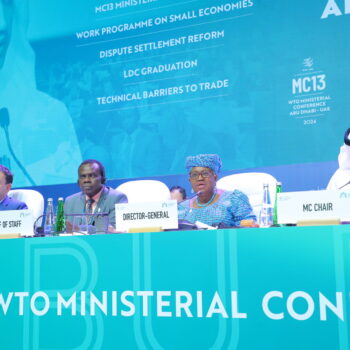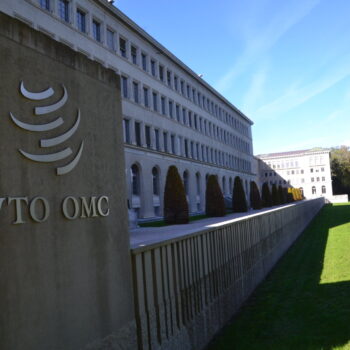What is a ‘European Green Deal’?
After years stuck in the margins of EU policymaking, climate change and environment has in recent months become one of the most crucial issues on the political agenda. Incoming European Commission president Ursula Von der Leyen proposed the ‘European Green Deal’ as the first of her political priorities.
But what is a European Green Deal? Is it simply a new green label stuck on top of business-as-usual policies, or a deeper organising principle for European politics? Is it the same thing as a Green New Deal, or something else entirely?
Early policy details are beginning to emerge. There will be a climate law to lock in the net zero 2050 objective, a Just Transition Fund, and a Sustainable Europe Investment Plan, amongst other measures.
As a political project, however, the European Green Deal is still being built. In the first instance, it is an attempt to hold together a fragile political coalition needed to gain European Parliament and European Council approval of the new European Commission and its agenda.
Beyond this, the European Green Deal is an amalgam of overlapping political projects – each with their own aims, constituencies, risks and success factors. The European Green Deal is at once conceived of as a climate project, aimed at making Europe a climate neutral continent; as a social project, to support a just transition; as an economic project, seeking to rejuvenate EU investment and competitiveness; as a European project, to give new purpose and unity to the EU; and as an international project which will take a more geopolitical approach to global climate security.

This paper unpacks these multiple political projects that make up the European Green Deal and looks at how the underlying politics of the European Green Deal could succeed or fail.
As a climate project, the European Green Deal needs to show genuine honesty and urgency in the face of unprecedented citizen concern about the climate emergency. This means shaking up normal EU functioning to avoid stagnation and political capture.
As a social project, the European Green Deal will need to face up to the inequalities shaping how different regions and social groups will be impacted by the climate transition. The Just Transition imperative goes far beyond coal to other sectors in transition across the economy and means investment in ‘just resilience’ to respond to the uneven impacts of climate disasters. Finance is useful but ultimately a Just Transition Fund will not be sufficient on its own.
As an economic project, the European Green Deal has the potential to stimulate investment in the face of a weakening global economy and persistent economic inequalities. This echoes previous New Deal and Green New Deal concepts. But its success depends on going further: addressing the structural economic risks posed by climate change and pivoting European industry to be able to succeed in a zero carbon economy.
As a European project, the European Green Deal needs to engage citizens, not just in token initiatives but by redesigning markets, institutions and financing mechanisms to give citizens a more direct stake. The project will also need to overcome recent East-West divides. This requires patient engagement rather than regulatory derogations.
Finally, as an international project, the European Green Deal needs to find a more geopolitical approach within a more geopolitical Commission. Climate politics are reshaping global power dynamics. Climate security for Europeans can only be achieved by acting both within and beyond Europe’s borders.



